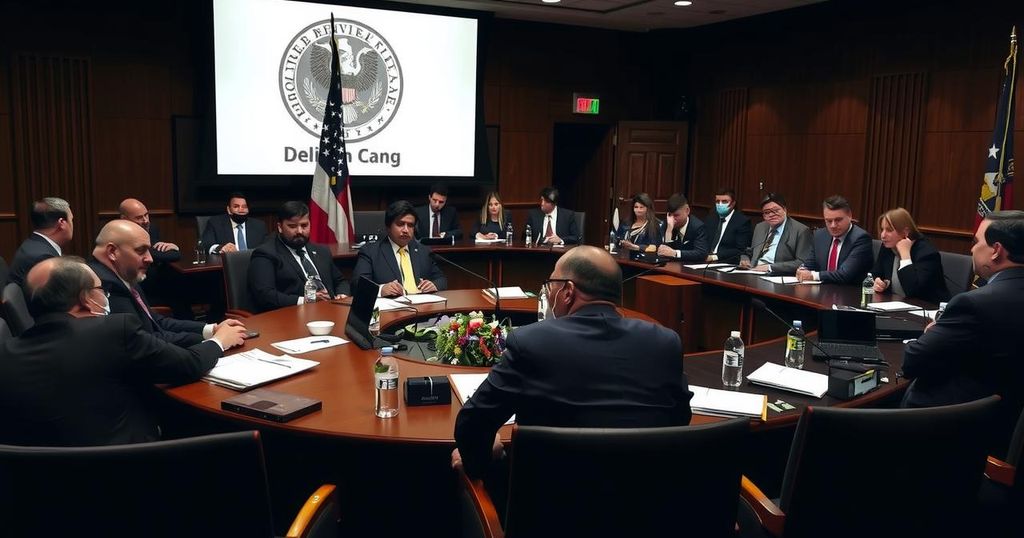President Felix Tshisekedi of the Democratic Republic of Congo has announced plans to create a commission next year to revise the Constitution, arguing that it has weaknesses and does not reflect the country’s realities. He addressed supporters in Kisangani about issues related to government formation and political self-interest. While the ruling coalition supports the revision, opposition leaders express concerns regarding potential motives to extend the president’s term in office. The current Constitution was last revised in 2011 and remains a contentious subject in Congolese politics.
President Felix Tshisekedi of the Democratic Republic of Congo (DRC) has proclaimed his intent to establish a commission dedicated to revising the national Constitution. This announcement was made during his address to supporters in Kisangani on October 23. President Tshisekedi articulated his belief that the current Constitution exhibits significant weaknesses and fails to reflect the actual circumstances within the nation. He specifically pointed to issues delaying the installation of the government and provincial assemblies, attributing these to “selfish interests” that he perceives as prevalent within the ruling coalition. This coalition has experienced prolonged negotiations which led to a significant delay in swearing in the new government—almost six months post-re-election. This delay has been characterized by claims from various parties seeking representation within the executive. Currently, there are over 50 ministers led by Judith Suminwa Tuluka, the nation’s first female Prime Minister. The call for constitutional reform has been echoed within the ruling coalition for several weeks, with the Secretary General of the UDPS, Tshisekedi’s political party, recalling the late party leader Etienne Tshisekedi’s recommendation for a constitutional revision. However, it is imperative to note that the matter has generated considerable division amongst the populace, with opposition leaders cautioning against the potential for President Tshisekedi to manipulate the constitutional amendment process to extend his tenure in office. In response to such suspicions, President Tshisekedi asserted, “a change regarding the presidential term” would not affect him personally, emphasizing that such issues should fundamentally concern the citizens of the DRC. The current Constitution is the third fundamental law of the DRC, adopted via referendum, and emerged as part of the objectives established by the 2003 government of national unity. The last amendments to this Constitution were executed in 2011.
The Democratic Republic of Congo has had a tumultuous political history marked by a series of constitutional changes aimed at promoting stability and governance. The current Constitution, adopted in 2006, represents a significant milestone in this journey, following a protracted civil conflict and the establishment of a national unity government. President Felix Tshisekedi, re-elected recently, is seeking to address what he perceives as systemic weaknesses in the Constitution that hinder effective governance. His recent proposal to form a committee to revise the Constitution comes at a time of political discontent, particularly surrounding the delayed formation of governmental bodies and the concerns of coalition dynamics. The prospect of constitutional revisions has sparked debates on governance, presidential power, and the principles of democracy in the DRC, underscoring the complexities of the nation’s political landscape.
In conclusion, President Felix Tshisekedi’s announcement regarding the formation of a commission to revise the Constitution of the DRC highlights both the challenges facing the country’s governance and the contentious nature of political reform. While some advocate for necessary changes to adapt to current realities, significant opposition remains wary of possible intentions behind such amendments, particularly regarding presidential term limits. As this dialogue continues, it is crucial for the DRC to navigate these reforms with an emphasis on transparency and inclusivity to ensure that any constitutional changes reflect the will of the people.
Original Source: www.africanews.com






